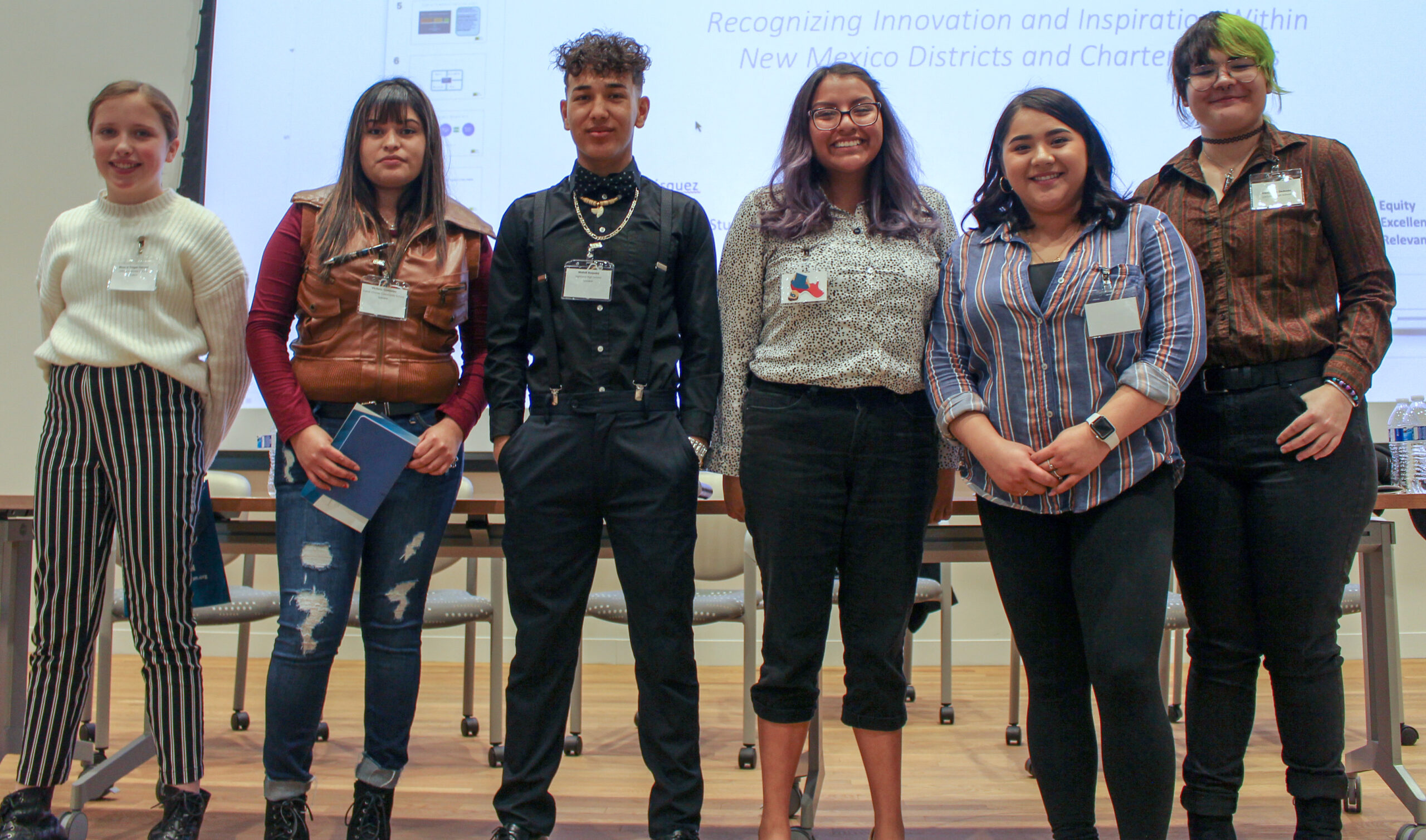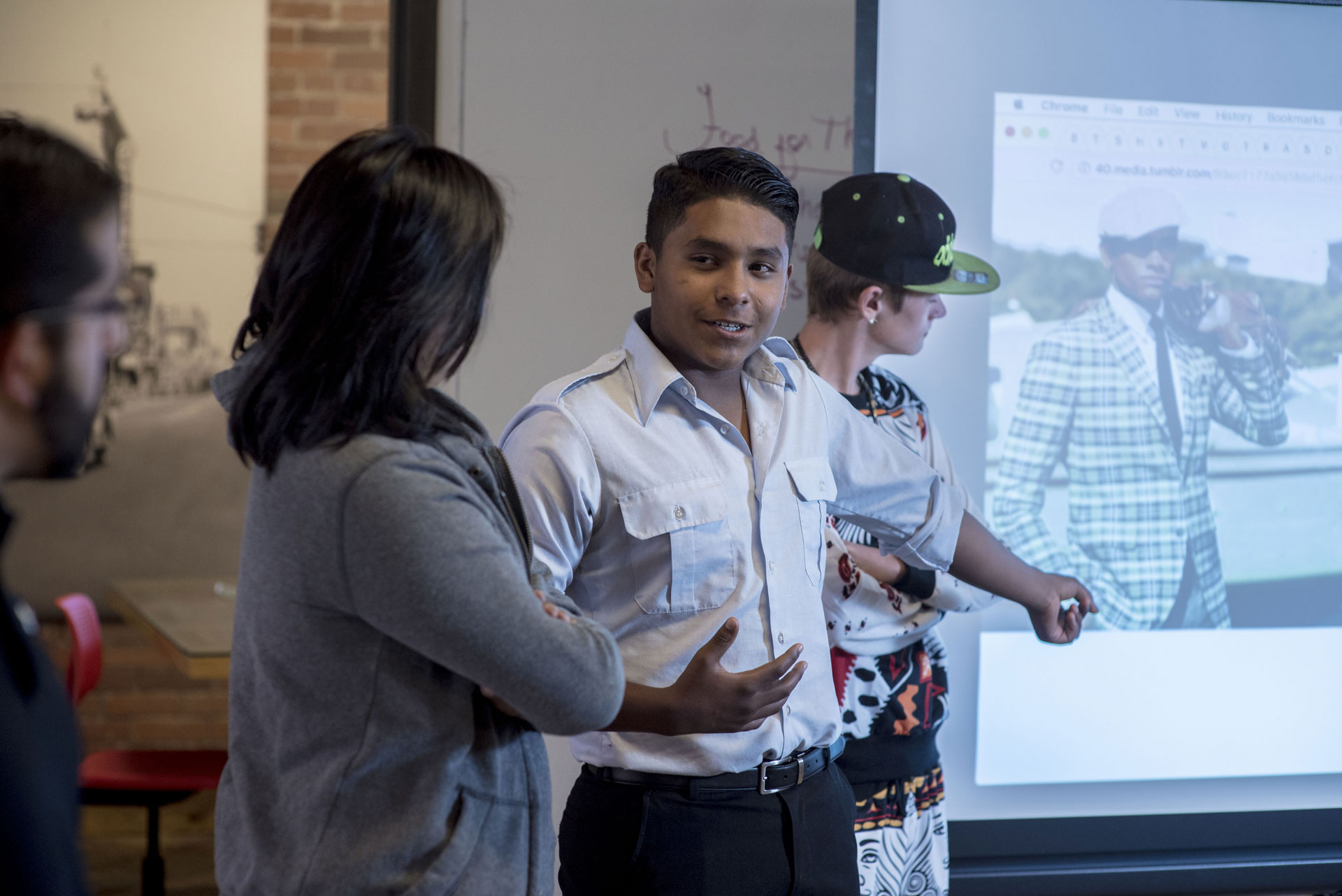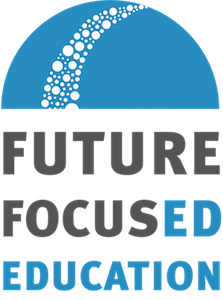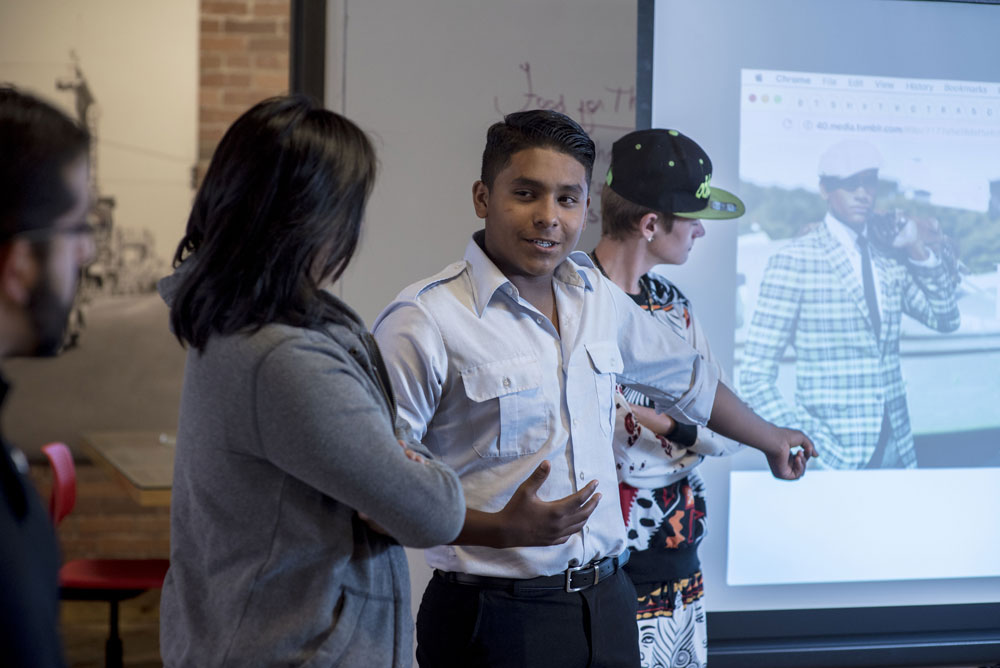Why New Mexico Needs Senior Capstones Now

“What if a collaborative and creative project that involved students’ families and communities drove the curriculum instead of a standardized assessment?”
As a middle school teacher for 25 years, I’ve witnessed first-hand the total transformation of student assessments over the course of my career. I taught prior to and during the peak of the No Child Left Behind Act (NCLB), and saw how much damage the standardization era did to our students and schools. But I believe we are turning the tide, and innovative alternatives to standardized tests will be our saving grace.
What Happened Under No Child Left Behind
Prior to NCLB, standardized assessments were given to students only in 4th, 8th, and 11th grades—not every single year from Kindergarten through 12th grade like they are now. NCLB legislation ushered in an era of so-called “accountability” that changed how educators and the public thought about measuring student growth.
We moved from looking at what students could do or had learned, into measuring what students did not know or what they could not do—the now infamous deficit approach. Our awareness of this change in perception is especially critical in a state like New Mexico, where a majority of the population come from diverse cultural and linguistic backgrounds and many speak a language other than English at home.
Instead of leaning into the opportunity to cultivate a biliterate citizenry versed in locally-relevant history, language, and culture, we chose a different path—a standardized path—as a nation.
What We Need Now
After more than twenty years of focusing on achievement arbitrarily measured by standardized test results, there has been no room for using assessment as an instrument of learning. Standardized curriculum and testing don’t measure capacities like creativity, collaboration, or commitment.
What we truly need is...
- Flexibility to work with our students and communities
- Authority to implement changes that benefit both educators and students
- Leadership opportunities that are entrusted to educators who work directly with students
As all educators know, getting to know a child and watching them grow and learn is the best part of being a teacher.
What if a collaborative and creative project that involved students’ families and communities drove the curriculum instead of a standardized assessment? How would schools be different? How would teacher and student learning be different?

The Future of Assessment
Assessments could further students’ knowledge and experience if they were opportunities for students to apply what they have learned—such as an in-depth study of a societal problem, a portfolio of findings and research, or a final demonstration of learning to family and school community.
A capstone project is an alternative to standardized testing that is experiencing a renaissance in recent years—and rightly so. An extension of the increasingly popular and research-supported “project-based learning” approach to curriculum design, capstone projects give students an opportunity to focus on aspects of a subject that are particularly interesting or personally meaningful to them, and employ creativity in demonstrating their understanding. In fact, senior capstone assessments are being piloted across the state this year, as a part of the New Mexico Graduation Equity Initiative.
The benefits of capstone projects are multitude: they provide students with real-life experiences and allow them to apply what they’ve learned to issues in their own communities, they give students choice and improve engagement and motivation, and they give students opportunities to demonstrate skills and interests that would not otherwise be recognized. While replacing standardized assessments with project-based assessments and other alternatives will be no easy feat, NEA firmly believes that the benefits to students, educators, and school communities would be astronomical.
After years of effort from NEA, and partners like Future Focused Education, a new era of assessment is on the horizon. It is our hope that educators will once again be able to exercise creativity in designing assessments that are tailored to what a child is learning and has learned.
The New Mexico Graduation Equity Initiative is piloting a new project-based graduation pathway that culminates with capstone projects as an alternative to traditional testing. Learn more and join the movement here.
Read more in our Equity in Education series, tracking the progress of the New Mexico Graduation Equity Initiative.



